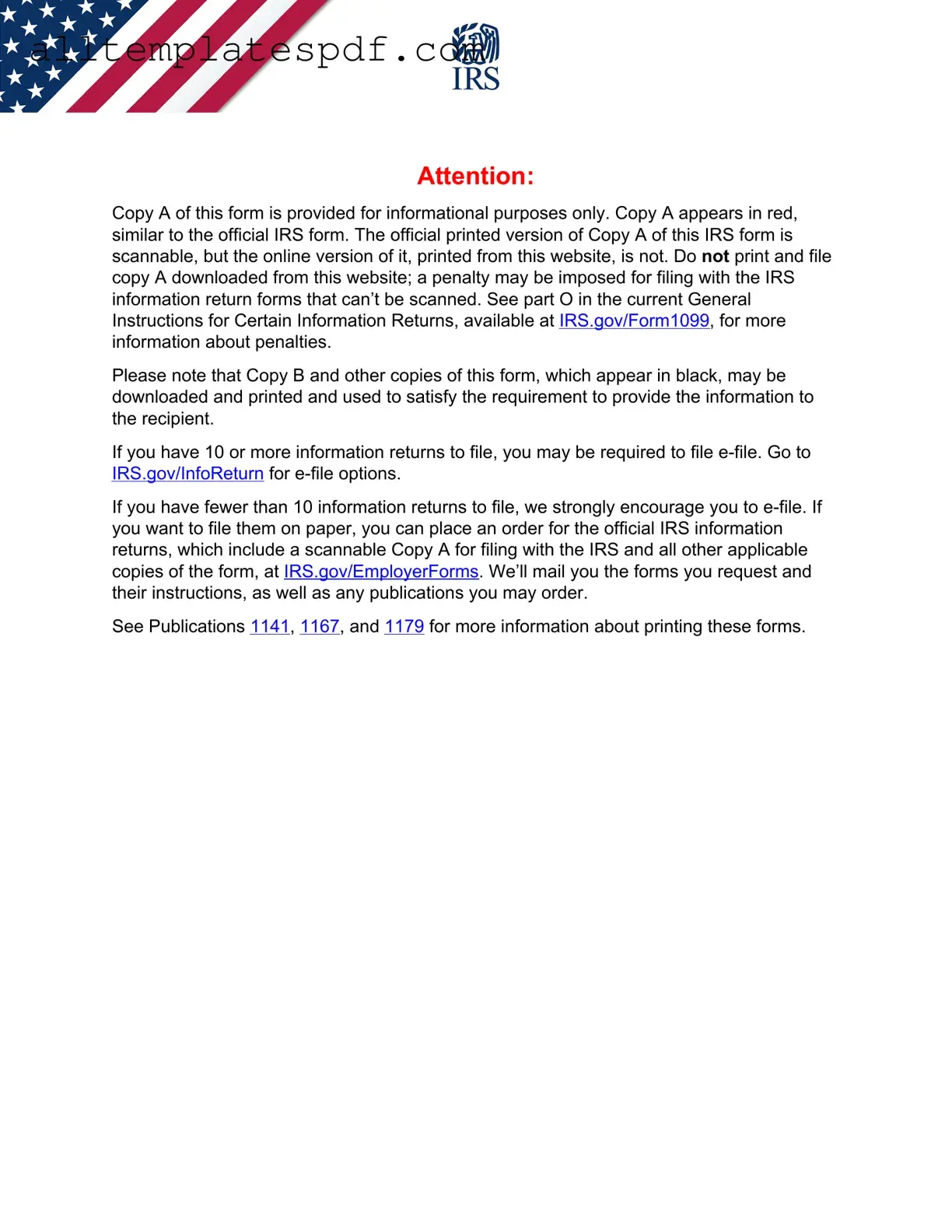Fill Out a Valid IRS 1099-MISC Form
The IRS 1099-MISC form is used to report various types of income other than wages, salaries, and tips. This form is typically issued to independent contractors, freelancers, and other non-employees who have received $600 or more in a tax year. Understanding how to fill out this form is essential for accurate tax reporting, so be sure to click the button below for guidance.
Open Editor

Fill Out a Valid IRS 1099-MISC Form
Open Editor
Fast and easy form completion
Complete IRS 1099-MISC digitally — fast and easy.
Open Editor
or
↓ IRS 1099-MISC PDF Form
